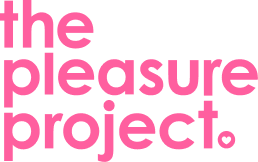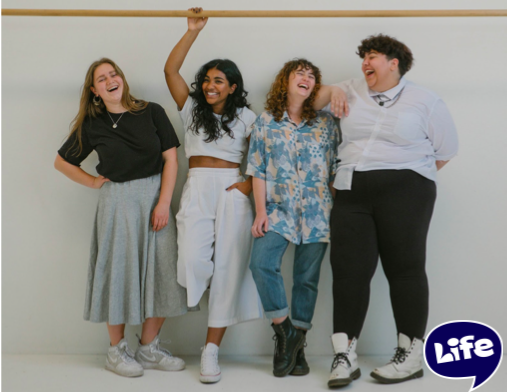Hello! We are Nicole and Jamie, co-founders of Life Lessons, an online platform featuring a full curriculum of original video content presented by relatable young people from an array of lived experiences. The young people talk about a range of topics including consent and communication, sexual pleasure and gender stereotypes – topics that are often overlooked in school yet young people want to be discussing. The videos are complemented by lesson plans and assessment tools to empower teachers to teach the subject in an effective way.
In this post, we will share the key findings from our pilot research exploring what young people think about relationships and sex education and how they found using the Life Lessons platform.
What issues do young people face today related to relationships and sex?
Life for a young person today is increasingly complex. There is a seamless connection between online and offline worlds and as a result, relationships, sex, gender and identity are constantly changing. There are lots of conversations happening about issues related to diversity, identity and equality and many of the old certainties of sex and relationships are being challenged by things such as women’s rights, sexual harassment, and LGBT+ rights. Young people may have the language to discuss these complex topics but that doesn’t make them easy to solve.
Research shows that effective Relationships and Sex Education (RSE) helps better prepare young people for the world today. Since September 2020, it has been mandatory for most state maintained schools in England to deliver Relationships and Sex Education (DfE 2019). Statutory commitment does not, however, guarantee success; RSE must be designed and delivered in a way that is effective and responsive to learners (Limmer, 2010).
A little more about us
My co-founder, Jamie and I started Life Lessons 2 years ago at the time when the government had announced that Relationships and Sex Education was to be made compulsory in schools from Sept 2020.
As a former Personal Social Health Education (PSHE) teacher, I found that the subject lacked diversity and often it was difficult to make the lessons relevant and interesting to the class. Talking to my colleagues, overall teachers found it an awkward but crucial subject and they were calling out for more support.
Jamie has a background working within businesses that develop technology products to support learning and progression in Higher and Secondary education (edtech). He developed an interest in the power of relatable peer-to-peer learning while part of the founding team at The Student Room. It was here that Jamie saw how useful it can be to connect students at the same stage on their education journey, as well as those who are on a stage, who have experiences to share. He found that these relatable connections could lead to reassurance, aspiration raising, learning and behaviour change.
Jamie and I felt there was an opportunity to combine their experiences to improve RSE provision, so we started talking to countless teachers, young people and experts. We shaped our innovative idea to revolutionise sex education, to make it relatable, diverse and engaging.
The Life Lessons approach includes:
- Providing the ingredients for discussion about important issues – using videos of real young people sharing their experiences.
- Raising the profile and the importance of Personal, Social, Health Education and RSE in schools
- Bringing diversity and inclusivity to RSE
- Supporting schools and teachers to deliver the breadth of what is needed
- Providing schools with a means to demonstrate impact with PSHE/RSE
- Trying to change attitudes and behaviours to create a more equal future
What does Life Lessons do?
Our main aim is to normalise the most important conversations. RSE is a great way to build skills such as critical thinking, reflection and resilience.
We film the authentic experiences of young people from a range of different backgrounds, lived experiences, sexualities, genders etc. to allow other young people to discuss, learn and challenge their own thinking. We also provide teachers with the tools to facilitate these discussions in the classroom.
(Image shows: Jonty, one of our content creators during our filming, Summer 2020)
Our pilot schools focused on two key modules: Mental wellbeing post lockdown and consent and communication.
So, what did we find out?
We set out to understand how young people want to learn about RSE? How did hearing from other young people sharing their stories benefit pupils? Was it more relatable, engaging and applicable to their day-to-day lives? How did teachers find using the resources? Did they have an impact on teacher confidence at delivering the subject?
From September 2020 to January 2021, we ran a pilot with 4 schools across the UK, involving over 700 pupils and 50 teachers.
What young people said:
- “The people in the videos were authentic”
- Over 70% said it helped them to hear about different perspectives and consider other points of view
- One pupil said “I loved learning about how a transgender person felt and what is going on in their head, even though it was not personally relevant to me because I’m not transgender”
- Over 60% said they had learnt knowledge and skills that will help them in day to day life
- Most felt that they helped them consider the issues raised further
- 70% of young people also felt there was opportunity for discussion and debate within the classroom however there was a desire for more time for classroom discussion and different formats within the videos, for example role-play and group discussion between speakers
What teachers said:
- They felt the videos were appropriate, relevant and showcased a variety of perspectives, their pupils engaged well, learned and developed their knowledge
- They felt that the videos and activities helped to generate two-way discussion and they felt confident in facilitating those discussions
- The resources also helped them deliver safe and inclusive lessons
Why is Life Lessons important?
Research from the PSHE association shows that young people want relationships and sex education! However, at the moment they find it disengaging and not relatable to their daily lives. They find that it’s mostly factual, risk-averse and that it focuses on the negative aspects of RSE which they find less helpful. Young people want to be involved in the learning process, they want to discuss, debate and participate and they want opportunities to reflect.
They also want realistic education that speaks to the realities of their day-to-day lives and experiences. However, the above is currently lacking and as a result most young people consult friends and the internet as their source of information about relationships and sex.
53% of young people rated their RSE ‘OK’ to ‘very bad’.
Young people felt that some topics had been covered sufficiently in school such as puberty and bullying. However, other topics that they felt they wanted more on were sexual pleasure and pornography.
It is clear that for RSE to be effective, it needs to involve open, active and interactive teaching and learning that reflects and engages with learners’ diverse situated realities and lived experiences of the topics. This needs to be facilitated by a skilled and motivator educator. It is crucial that the content is connected to young people’s everyday lives, includes diverse perspectives and experiences and that it is honest and realistic.
We are now working with more schools and young people across the country, continuing to develop our resources and creating brand new content this summer! If you are a school/parent who would like to get involved or know more, we’d love to hear from you! Please get in touch by emailing nicole@lifelessons.co.uk or please go to our www.lifelessons.co.uk to find out more.


